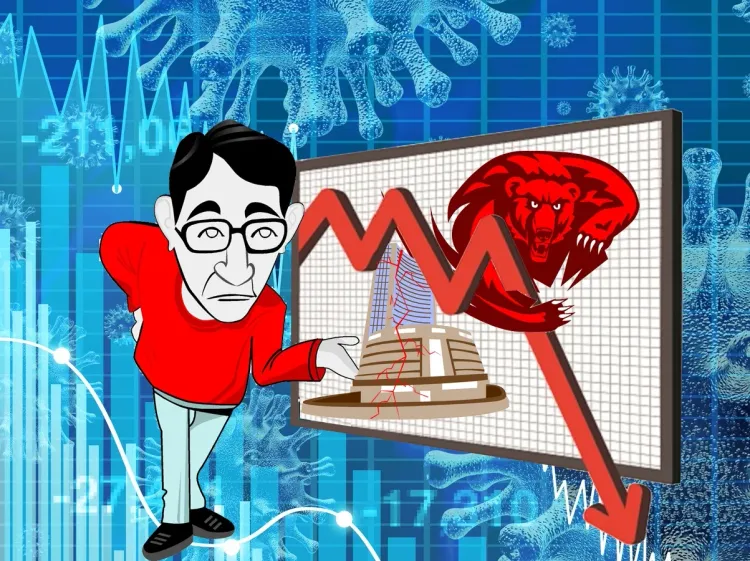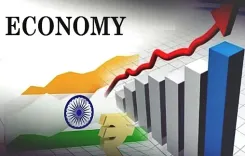Is the Indian Stock Market Facing Challenges Amid Middle East Tensions?

Synopsis
Key Takeaways
- Indian benchmark indices opened lower amid global tensions.
- IT and auto sectors saw significant selling.
- Analysts expect limited market impact despite the crisis.
- Foreign institutional investors continue to buy equities.
- Market strategies focus on 'buy on dips.'
Mumbai, June 23 (NationPress) The Indian benchmark indices started off the week on a negative note on Monday, influenced by weak global signals stemming from escalating tensions in the Middle East. Early trading saw selling pressure in the IT and auto sectors.
By approximately 9:30 AM, the Sensex had fallen by 677.10 points, representing a 0.82 percent decrease, settling at 81,731.07. Meanwhile, the Nifty index dropped by 204.6 points, or 0.81 percent, positioning itself at 24,907.75.
The Nifty Bank index was down by 387.75 points, or 0.69 percent, reaching 55,865.10. The Nifty Midcap 100 index saw a decrease of 219.45 points, or 0.38 percent, placing it at 57,776.05. The Nifty Smallcap 100 index stood at 18,148.95, down by 45.25 points, or 0.25 percent.
Analysts indicate that despite the recent US airstrikes on three Iranian nuclear facilities exacerbating the situation, the overall market impact is expected to remain limited. The uncertainty now lies in how and when Iran will respond.
Dr. VK Vijayakumar, Chief Investment Strategist at Geojit Investments Ltd, remarked, "Should Iran target US defense installations or inflict serious harm on US military personnel, the US may retaliate significantly, escalating the crisis further. However, the prevailing market sentiment suggests there are limits to Iran's capabilities against the US and Israel."
He added, "The closure of the Hormuz Strait would likely hurt Iran and its ally China more than anyone else. The market is still leaning toward a 'buy on dips' strategy."
Within the Sensex constituents, major losers included Infosys, HCL Tech, Hindustan Unilever Limited, Eternal, TCS, Asian Paints, Power Grid, Reliance, and ITC. On the positive side, Bharat Electronics Limited (BEL), Bharti Airtel, and Trent emerged as the top gainers.
On June 20, foreign institutional investors (FIIs) continued their buying spree for the fourth consecutive day, acquiring equities valued at Rs 7,940.70 crore. In contrast, domestic institutional investors (DIIs) sold equities amounting to Rs 3,049.88 crore.
Devarsh Vakil, Head of Prime Research at HDFC Securities, stated, "We anticipate a negative response from our markets, leading to a lower opening before attempting to recover from these initial losses. Immediate resistance is now at 25,222 levels, while support has shifted upwards to 24,800 levels."
In the Asian markets, Bangkok, Japan, Seoul, Hong Kong, and Jakarta were all trading in the red, with only China showing positive movement.
In the previous trading session on Friday, the Dow Jones in the US closed at 42,206.82, up 35.16 points, or 0.08 percent. The S&P 500 ended down by 13.03 points, or 0.22 percent, at 5,967.84, while the Nasdaq closed at 19,447.41, down 98.86 points, or 0.51 percent.









